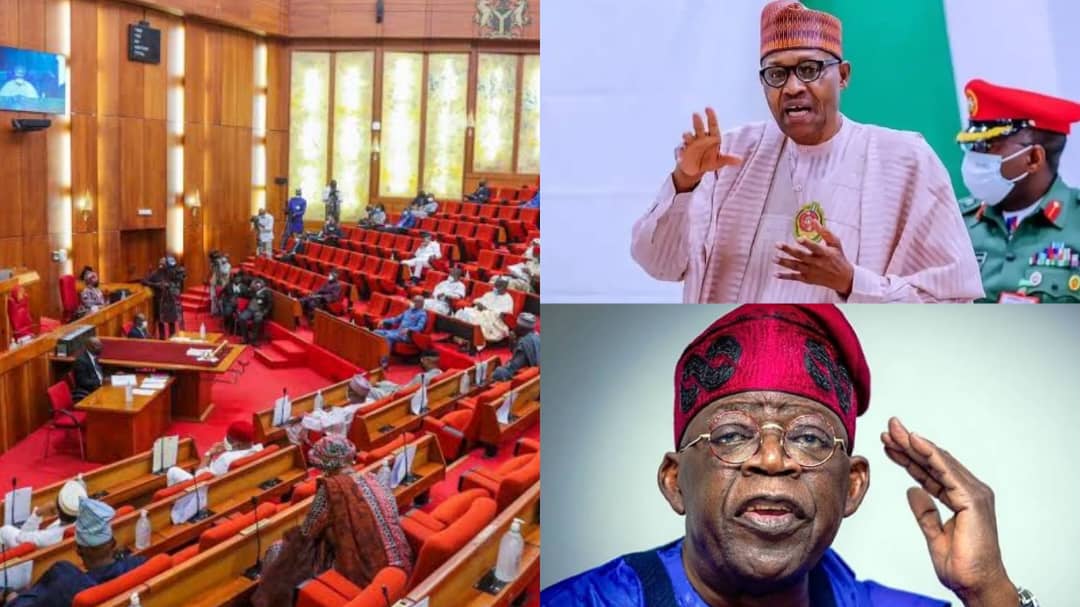As the National Assembly gears up for another week of legislative activities, a series of crucial bills and issues poised to take centre stage are up in this Legislative Intelligence Forecast Entry (LIFE) by OrderPaper. From state policing to expanding the powers of the FCT Area courts to protests in major cities due to rising costs of food and a return of fuel queues due to strikes, the Lawmakers have a full plate!

As Nigeria’s National Assembly convenes, it faces a confluence of challenges and opportunities that demand astute legislative action. In this Legislative Intelligence Forecast Entry (LIFE) article, we delve into the critical issues poised to dominate the legislative agenda.
With a keen focus on a constitutional amendment for state police, the expansion of the court’s powers in the federal capital territory, and the nationwide protests fuelled by the rising cost of food, the return of fuel queues, the escalating dollar rate and an impending strike by labour unions, Nigeria stands at a pivotal juncture requiring proactive governance and urgent intervention by the National Assembly.

Constitutional Amendment for State Police:
One of the foremost issues likely to garner attention in the National Assembly is the debate surrounding the establishment of state police. Nigeria’s security landscape has long been a topic of concern, with calls for decentralization to address the diverse security needs of its states. The clamour for state police stems from the recognition that local law enforcement agencies can better address localized challenges, enhancing response times and fostering community engagement.
However, the establishment of state police necessitates constitutional amendments, a process fraught with complexities and divergent opinions. Proponents argue that state police would enhance security while fostering accountability and efficiency. Conversely, sceptics raise concerns regarding the potential abuse of power, politicization, and fragmentation of security apparatuses.
The debate over state police is likely to be intense, reflecting diverse opinions and regional interests. Striking the right balance between autonomy for state law enforcement and maintaining national security standards will be a delicate task for lawmakers. Successful navigation of these complexities could mark a significant milestone in Nigeria’s quest for improved security architecture.

Expanding Powers of the Area Court of the Federal Capital Territory:
Another pivotal legislative endeavour on the horizon is the proposal to expand the powers of the Area Courts in the Federal Capital Territory (FCT) to, among other things, expand its Jurisdiction to entertain both civil and criminal matters.
As the epicentre of Nigeria’s federal governance, the FCT holds strategic importance in ensuring equitable access to justice and upholding the rule of law. However, the current jurisdictional limitations of the FCT court pose challenges in addressing legal matters effectively.
The proposed bill seeks to augment the authority of the FCT court, empowering it to adjudicate a broader range of cases and alleviate the burden on higher courts. By enhancing the FCT court’s capacity, the legislative initiative aims to streamline legal processes, expedite case resolutions, and bolster judicial efficacy.
However, this proposal is not without its challenges. Questions surrounding resource allocation, infrastructure development, and the need for judicial reforms must be carefully addressed. Achieving a consensus on these issues will be crucial for the success of the bill and, subsequently, for the overall improvement of the legal framework in the FCT.
The National Assembly’s endorsement of this bill would signify a significant stride towards enhancing judicial access and efficiency in the nation’s capital.

Socio-Economic Concerns:
Beyond constitutional reforms and judicial empowerment, the National Assembly must also confront pressing socio-economic challenges gripping the nation. Widespread protests stemming from the escalating cost of food, the resurgence of fuel queues, and volatile exchange rates underscore the urgency of addressing socio-economic disparities and bolstering economic resilience.
The rising cost of living has exacerbated socio-economic inequalities, exacerbated poverty and diminishing livelihoods. Nigeria’s reliance on oil exports renders its economy susceptible to external shocks, necessitating diversification efforts and prudent fiscal management. Additionally, the resurgence of fuel queues underscores systemic deficiencies in the nation’s energy sector, highlighting the imperative of comprehensive energy reforms.
Moreover, the depreciation of the naira against major currencies underscores the need for robust monetary policies and foreign exchange management strategies.
These economic challenges have significantly impacted the livelihoods of ordinary citizens, leading to widespread discontent. The National Assembly cannot afford to ignore the socio-economic dimensions of these issues, as they directly affect the well-being of the Nigerian populace.
As the National Assembly embarks on a new legislative session, the challenges and opportunities outlined in the OrderPaper’s Legislative Intelligence Forecast Entry (LIFE) present a formidable agenda.
The deliberative process must prioritize the collective welfare of all Nigerians, transcend partisan divides, and uphold the principles of democracy, justice, and accountability. By addressing the critical issues outlined in this forecast, the National Assembly can catalyze transformative change, fortify democratic institutions, and advance Nigeria towards a future defined by unity, resilience, and prosperity.
Navigating the complexities of constitutional amendments, judicial reforms, and socio-economic challenges demands a concerted effort from lawmakers, stakeholders, and the public alike.
Success in addressing these issues will not only shape the trajectory of Nigeria’s governance but also determine the well-being and prosperity of its citizens. The upcoming sessions promise to be a litmus test for the resilience and adaptability of Nigeria’s legislative apparatus in the face of pressing national concerns.
David Oputah
Oputah David M is a Bloomberg-trained Journalist with a diversified experience in online journalism and newsroom management. He is a 2023 MTN Media Innovation fellow!



